Textiles
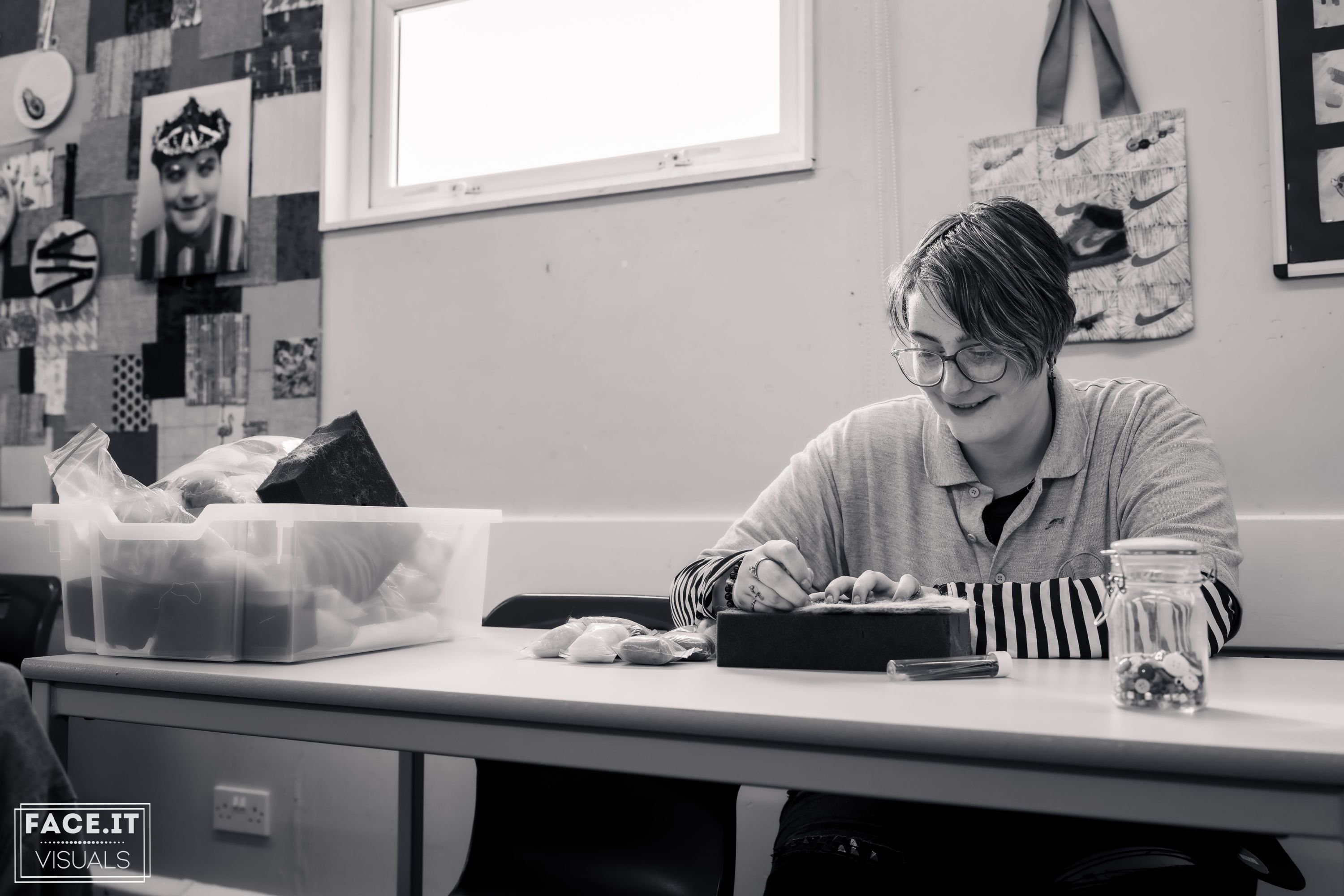
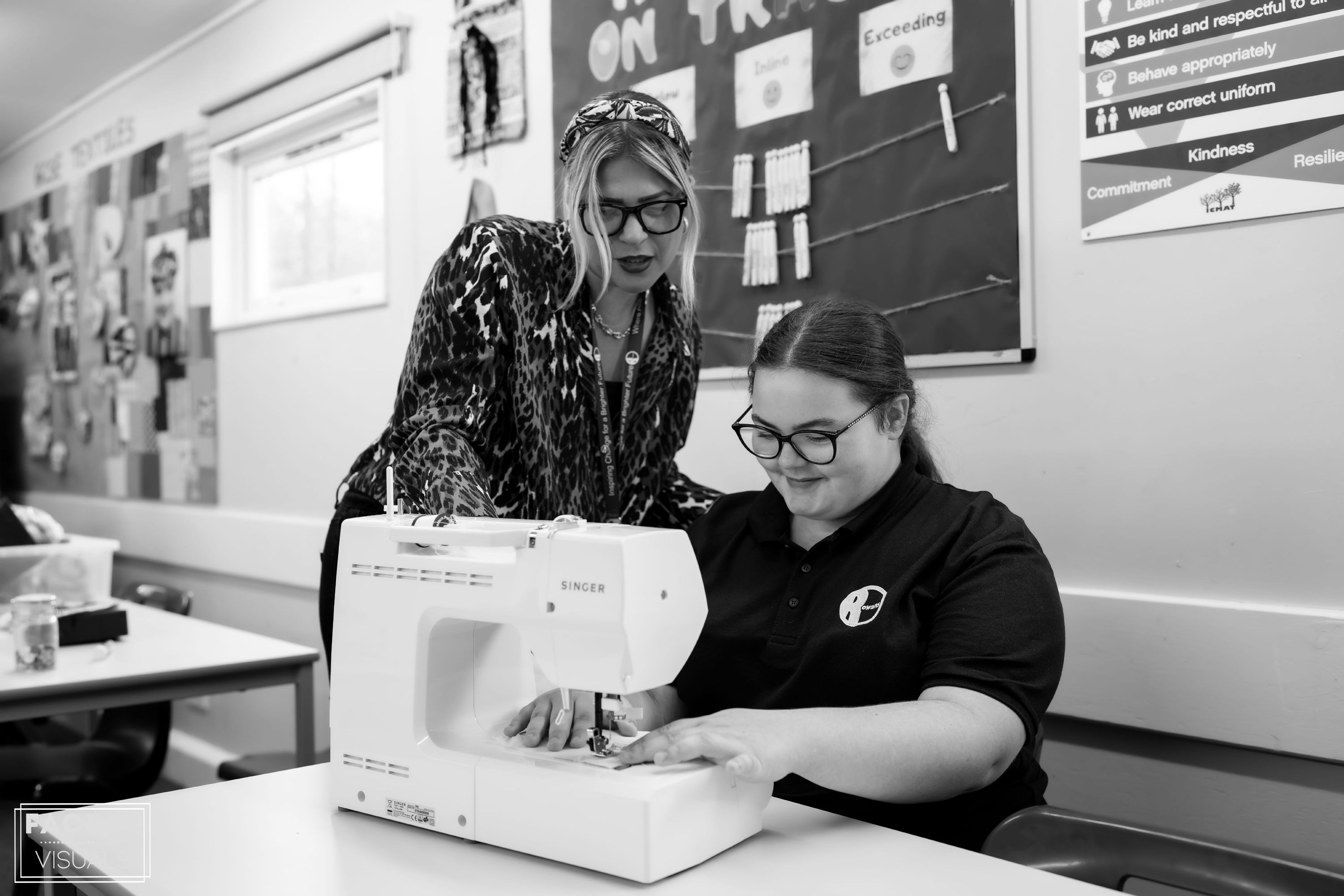
GCSE Textiles is now an established part of the ever-growing Art and Design curriculum on offer here at The Rowans. Pupils have the opportunity to sample Textiles during KS3 through schemes of work such as Mexican Candy Skulls and are then able to choose this as an Option in year 10 or 11. At GCSE level pupils produce a portfolio of work to include: artist studies, reflective annotations, development of ideas and a range of final outcomes; all of which display their knowledge and ability within the discipline.
Sequencing
The Textiles sequencing has been created to cover four AQA Assessment Objectives through 1 portfolio-based project; development work and a final outcome based on a chosen theme (Component 1). This allows pupils to learn and experiment with new techniques and processes which can then be used in developing their ideas further in the sequence of study. After sampling and practicing new Textiles skills, researching artists and designers; children design and make a Textiles-based outcome in line with their interests and theme.

Portfolio Work
In preparation for the exam pupils complete a portfolio of preparatory work, in line with their chosen exam brief. Firstly, artists and designers are researched and pupils create samples in a similar style using their growing understanding of Textiles specialisms. Idea development follows this; research and annotations are used to reflect on the suitability and effectiveness of ideas and outcomes. Finally, GCSE pupils undertake a 10-hour exam (Component 2) to bring together ideas and skills learnt throughout the year and produce final outcome reflecting their intentions in line with the exam brief.
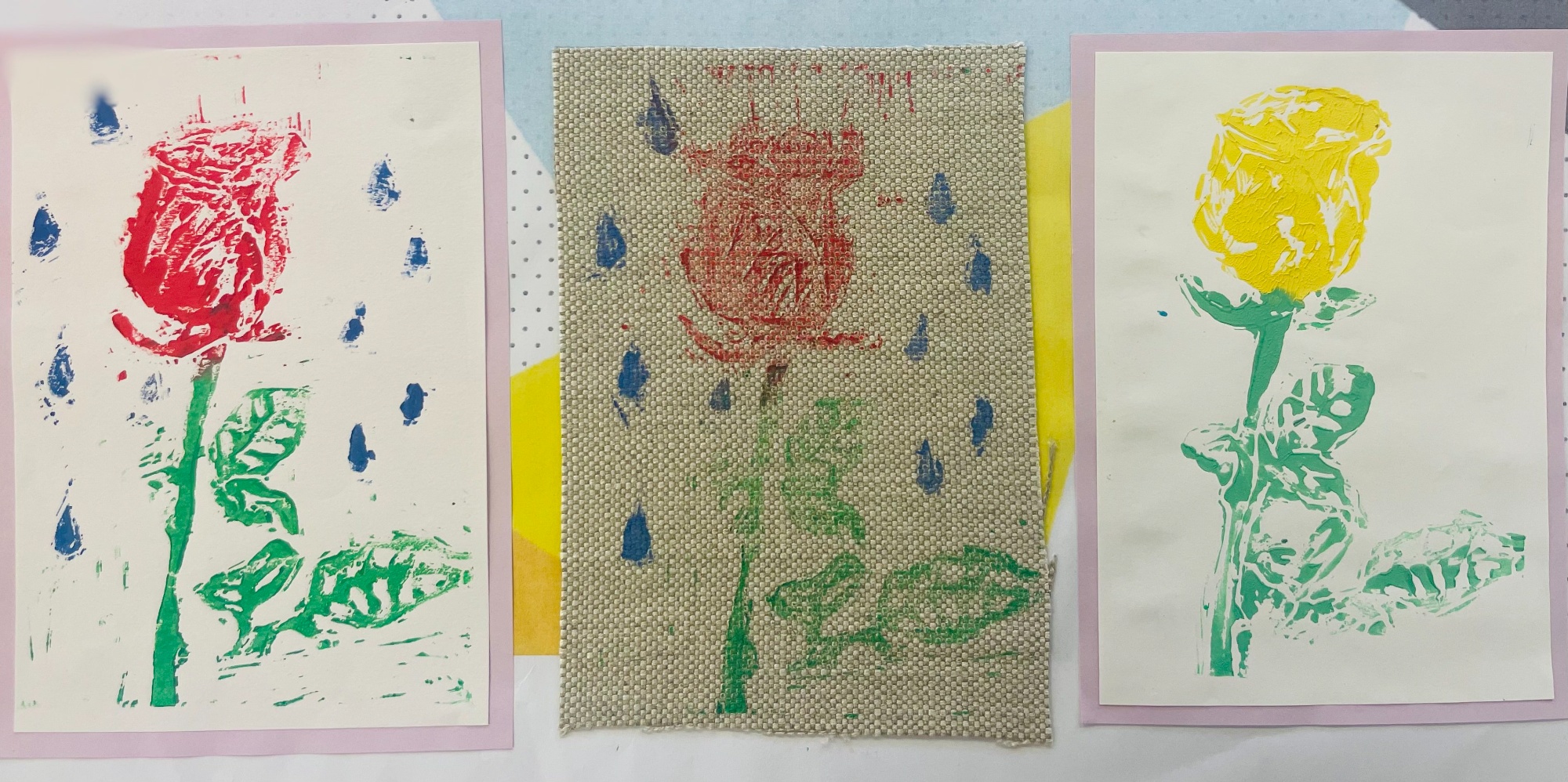
Course Details
Over the course of the year pupils will learn and practice key Textiles elements such as: Hand Embroidery, Machine Techniques, Embellishment, Applique, Pattern Design (digital and hand), Tie-dye, Needle Felting and how to design and construct ideas using pattern cutting processes. Furthermore, the Textiles scheme of work promotes a wider understanding of the world through personalised project themes such as beauty standards, racism and mental health issues.
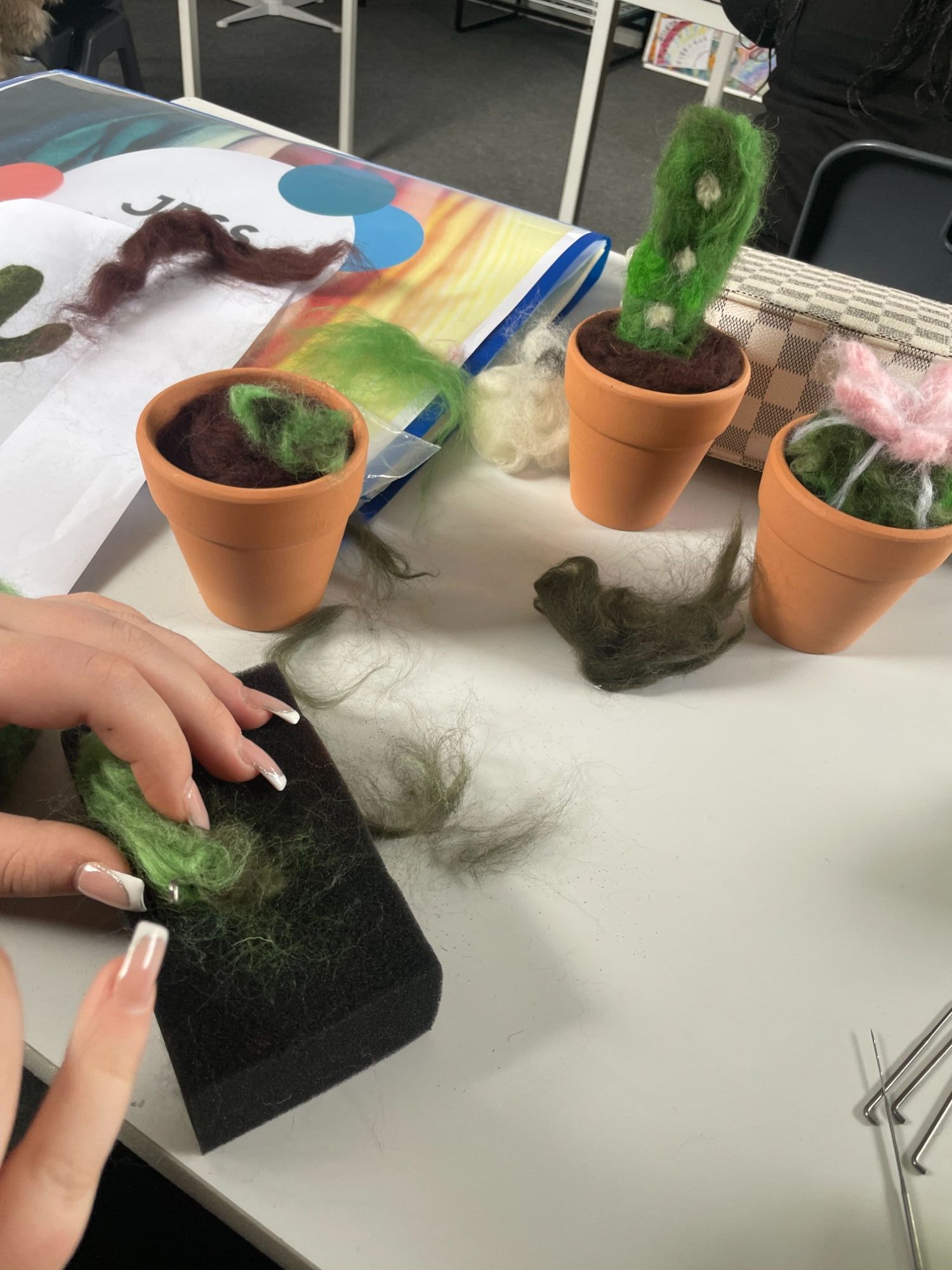
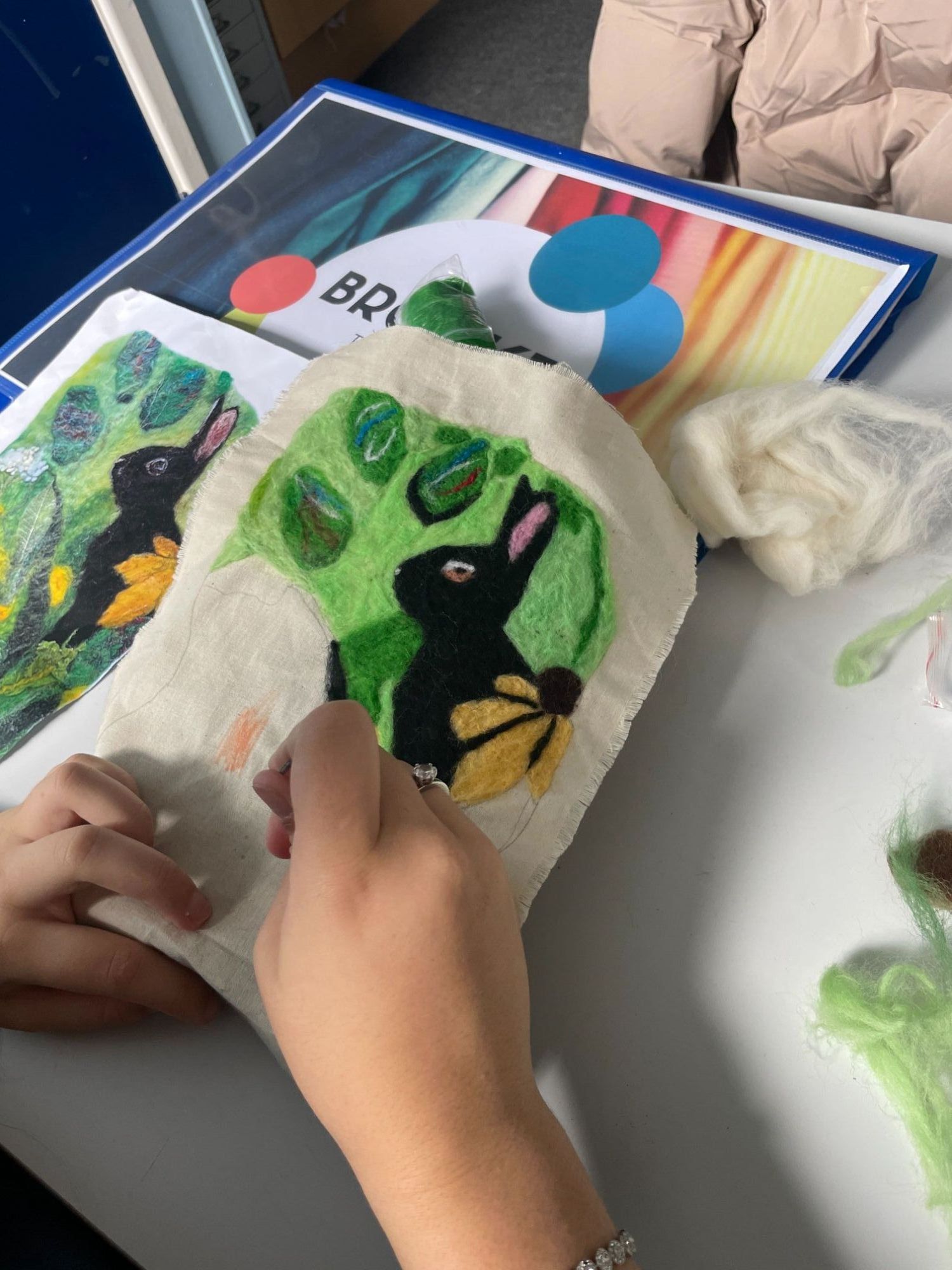
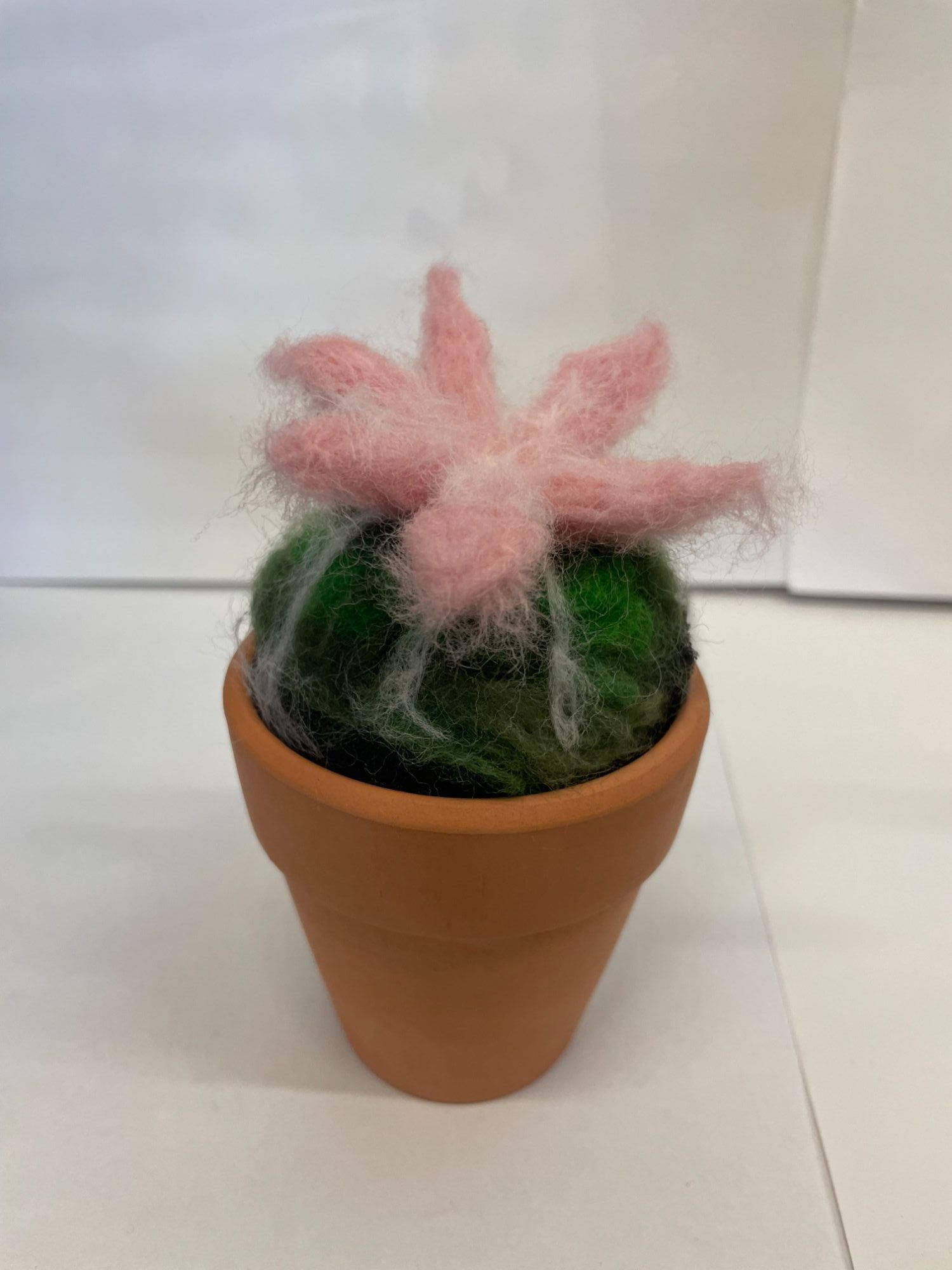
Expressing Ideas
The freedom to express ideas is supported in the Textiles classroom where children take ownership of their studies through chosen themes and interests. The holistic approach to Textiles facilitates both academic and social/ emotional development as pupils are encouraged to work within their individual strengths and interests. This Allows them to build a stronger sense of self-worth through experiencing multiple successes in the subject.
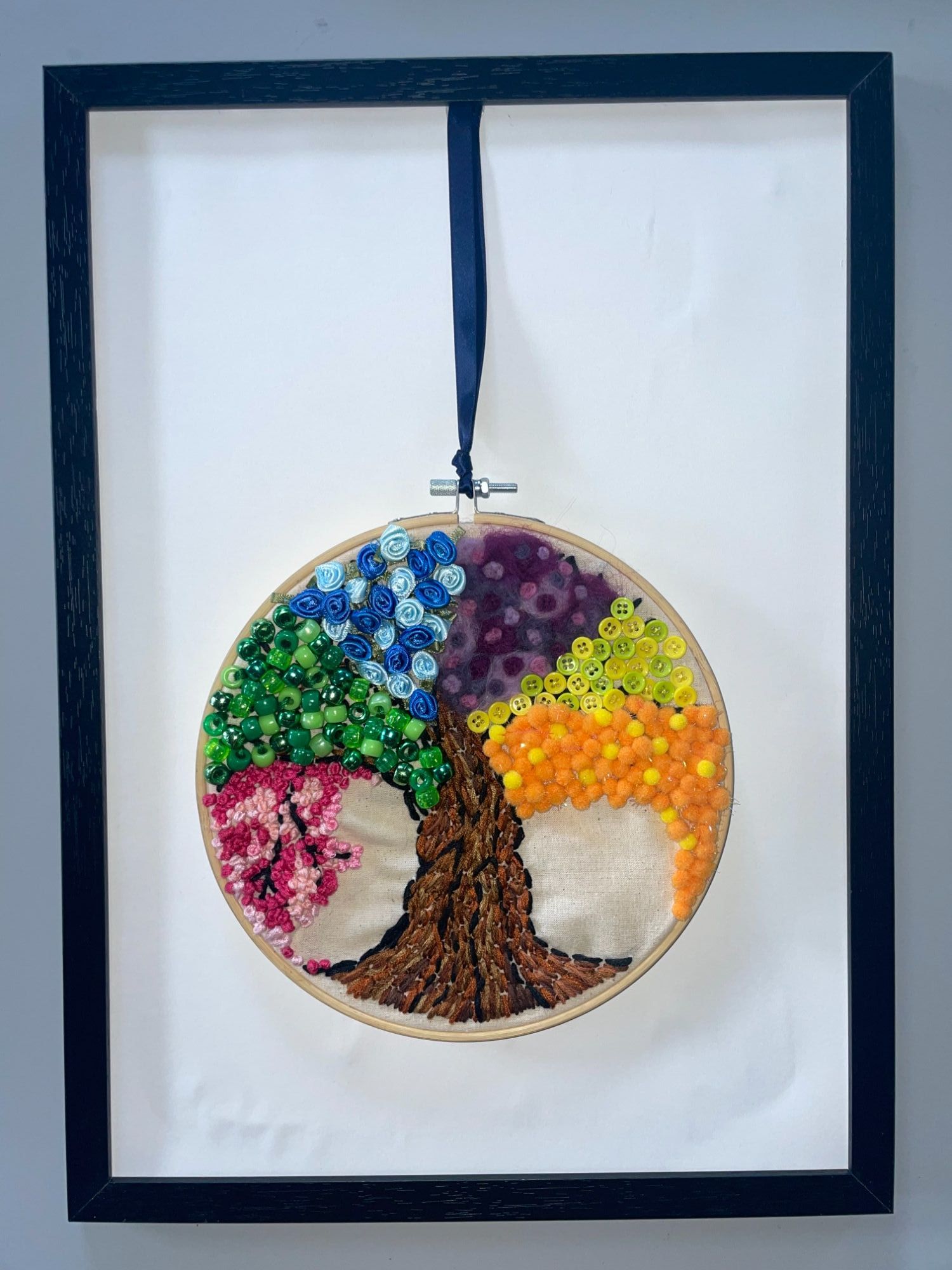
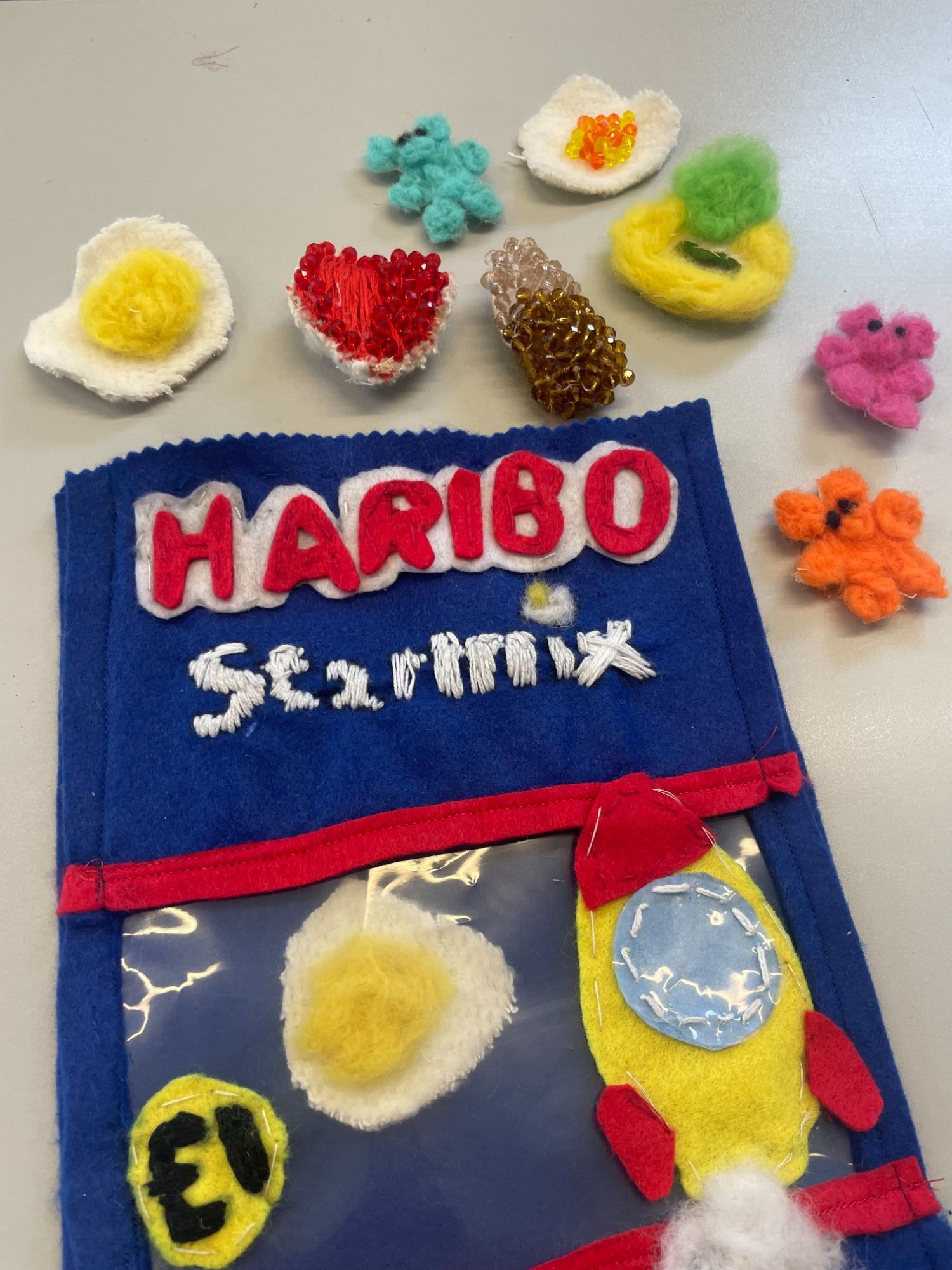
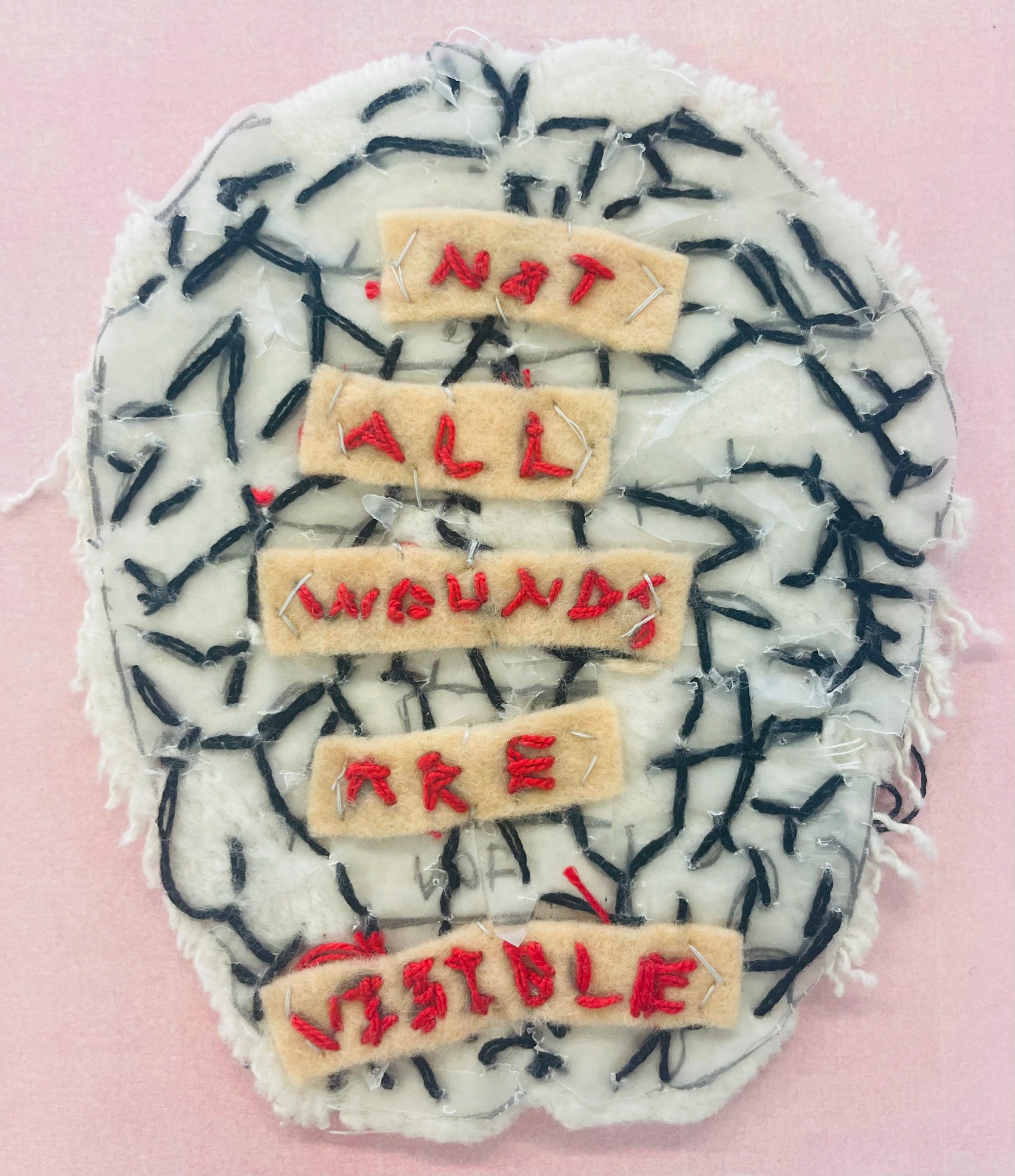
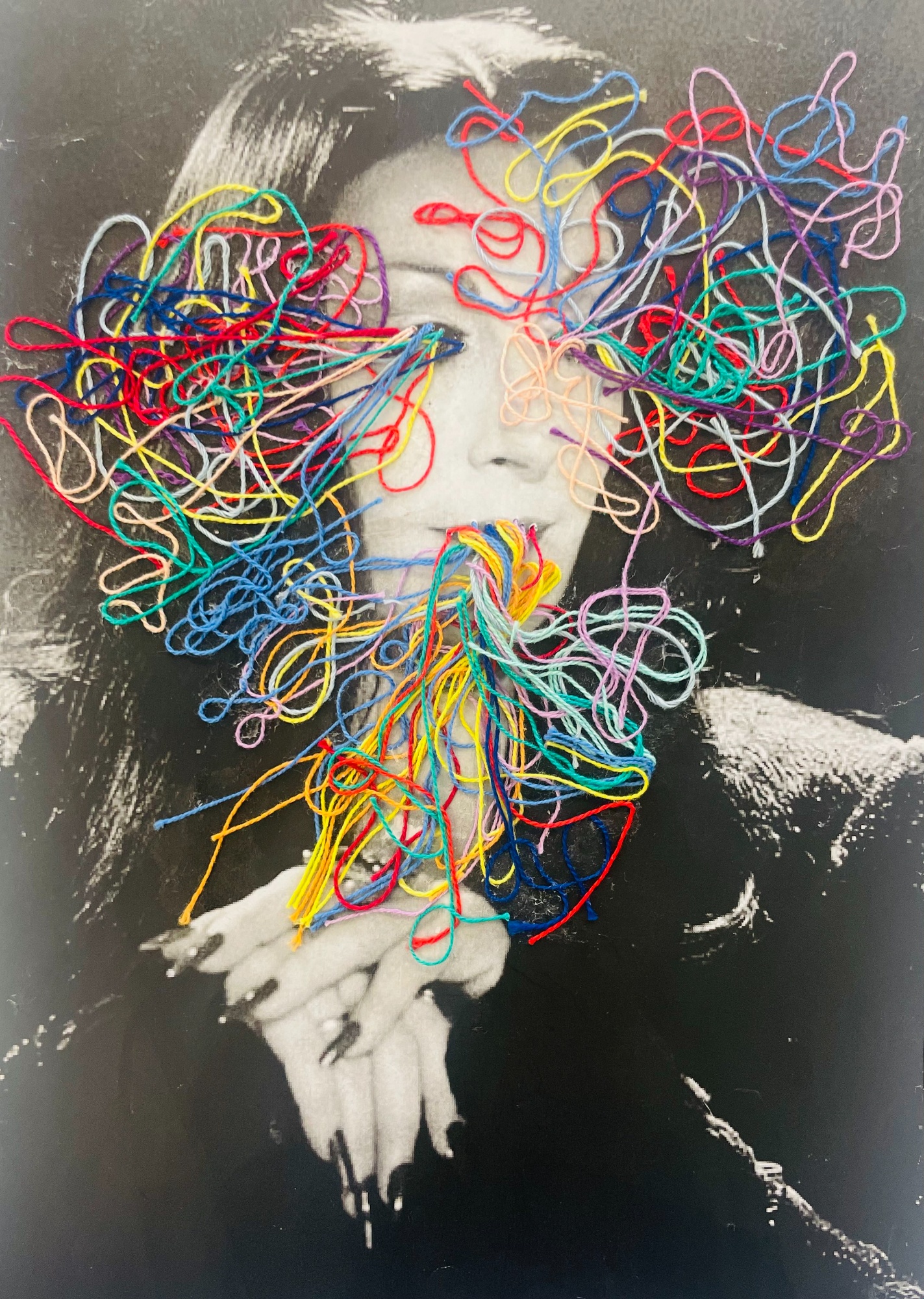
Cultural Capital and Enrichment
The potential topics explored in Textiles are linked strongly to Cultural Capital promoting a wider understanding of themes such as: the “Black Lives Matter” movement, LGBTQ+ community, bullying and gender rights. In addition, pupils work in specialists’ styles linking to other cultures and art movements. Opinions and pupil voice are fully respected in the Textiles classroom and we encourage discussion around difficult subjects to build mutual respect and understanding. Art and Design activities also play a key part in our “Values Days” where children partake in planned activities to meet one of The Rowans core values of “Kindness”, “Commitment” and “Resilience”. The department also offers many enrichment opportunities for pupils to enjoy Art and Design outside of the classroom. These include artist-led workshops, gallery visits and college trips. By extending links to outside partners, we are able to extend the Textiles curriculum into the wider world. The Cultural Capital aspects alongside enrichment, enables pupils to build an understanding of their place in the world and the contribution they make to our wider society.
